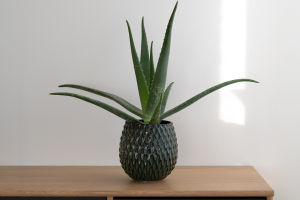Have you ever noticed how calm a room feels when it's filled with greenery? That peaceful vibe isn't just in your head. Indoor plants can actually influence your sleep quality in several surprising ways.
From purifying the air to reducing stress, a few well-chosen plants in your bedroom can make nights feel more restful and mornings more refreshing.
Plants and Air Quality
One of the most direct ways plants help sleep is by improving the air you breathe. Many indoor plants absorb carbon dioxide and release oxygen, but some go a step further by filtering harmful chemicals like formaldehyde and benzene from furniture, paints, and cleaning products. Cleaner air can reduce nighttime coughing, congestion, and restlessness, helping you fall asleep faster and stay asleep longer.
Stress Reduction and Calm
Plants aren't just functional; they have a subtle psychological effect. Studies have shown that being around greenery lowers cortisol levels, the hormone linked to stress. Simply seeing or caring for plants can create a calming routine, helping your mind transition from a busy day to a relaxed evening. This less stress factor makes it easier to drift into sleep without racing thoughts.
Best Plants for Better Sleep
1. Lavender
Known for its soothing fragrance, lavender can reduce heart rate and blood pressure, creating a peaceful atmosphere conducive to sleep. Keep a small lavender plant or a planters near your bedside.
2. Snake Plant
A nighttime oxygen booster, the snake plant continues to release oxygen even in the dark. Its low maintenance and ability to thrive in low light make it perfect for bedrooms.
3. Aloe Vera
Aloe vera is compact and easy to care for. Besides improving air quality, it emits oxygen at night, which can subtly enhance sleep.
4. Jasmine
Jasmine's sweet scent is naturally relaxing. Studies suggest that its aroma can lower anxiety and promote deeper sleep, making it ideal for a nighttime environment.
5. Peace Lily
Peace lilies not only filter indoor pollutants but also indicate when they need water, which makes care simple. Their presence can boost mood and reduce stress while maintaining fresh air.
Strategic Placement Matters
Where you place your plants can influence how effective they are.
1. Keep plants within sight from your bed so you can enjoy their calming visual impact.
2. Avoid overcrowding — too many plants can make a room feel cluttered and reduce airflow.
3. Consider using elevated shelves, small stands, or hanging baskets to maximize space and air circulation.
4. Rotate plants occasionally to ensure even growth and prevent leaning toward a light source.
Simple Care Tips for Nighttime Benefits
Even low-maintenance plants benefit from a little routine.
1. Water according to each plant's needs; overwatering can harm roots.
2. Wipe leaves occasionally to remove dust and maintain air-filtering efficiency.
3. Trim dead or yellow leaves to encourage healthy growth and prevent mold.
4. Monitor light exposure — even low-light plants need some indirect sunlight during the day.
Beyond Air: Mood and Routine
Indoor plants do more than clean air; they create a routine and a sense of connection with nature. Caring for plants in the evening can signal your brain that it's time to wind down, establishing a gentle pre-sleep ritual. Seeing thriving plants each morning can also elevate mood and provide a small but meaningful sense of accomplishment.
Even a single plant on a nightstand can transform the energy of a room. Combine a few complementary plants, and you're creating an indoor oasis that promotes deeper sleep naturally, without supplements or gadgets.
Setting up your bedroom with the right plants isn't just decoration — it's an investment in your health and well-being. Start with a few easy-care varieties, notice how your sleep responds, and gradually expand. Over time, your green companions can quietly improve your nights, helping you wake up more rested and ready for the day ahead.


